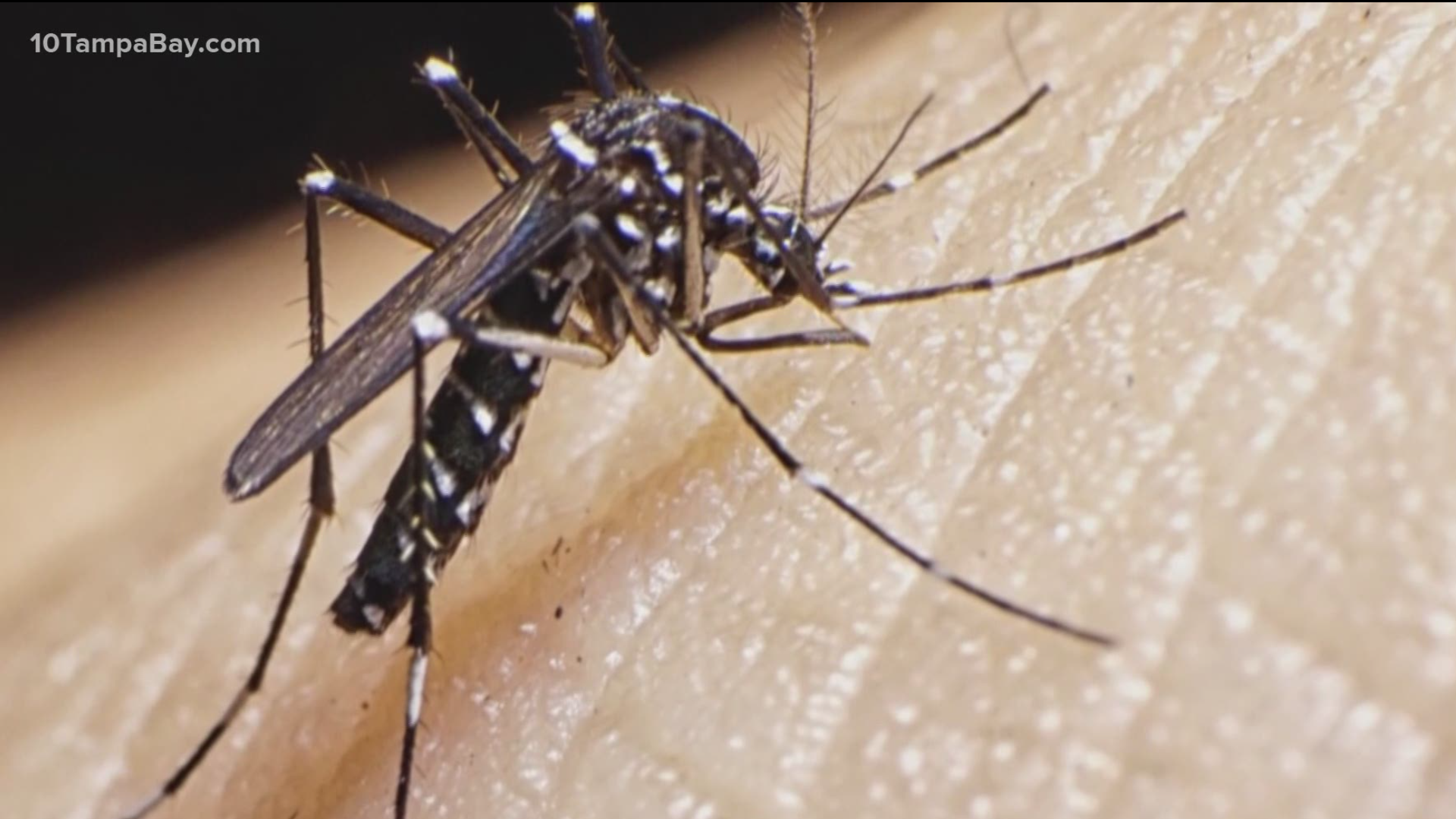PASCO COUNTY, Fla. — There’s some important health information to pass along about a deadly virus in our area, and this time we’re not talking about COVID-19.
Eastern Equine Encephalitis, which is carried by mosquitoes, has shown up in Pasco County.
“It is a very real concern,” said Adriane Rogers, Executive Director at the Pasco County Mosquito Control District.
On Monday, the Florida Department of Health and Pasco Mosquito Control issued a joint advisory.
Eastern Equine Encephalitis, a potentially deadly virus spread by mosquitos, is around every year. But this year, “We have increased activity in our early warning monitor system,” said Rogers.
The virus has shown up in a group of the county’s sentinel chickens, whose blood is tested regularly as a living alert system.
The latest results were alarming.
“Over 50% of the birds in that flock have shown positive blood samples for eastern equine encephalitis virus,” said Rogers. “Which is higher than normal activity.”
Mosquitoes usually get Eastern Equine Encephalitis from birds, then pass it along to humans and other animals.
Severe cases are rare, with just over a dozen spanning a decade in Florida.
But if contracted it can cause brain issues and is deadly more than 30 percent of the time.
“Yeah, that’s a big worry,” said Janessa Williams, visiting a local park Tuesday.
“We’ll definitely be more cautious, I think,” said Chris Bahr, a father of two.
Our recent dry weather isn’t helping.
Health workers say less rain pushes mosquitoes and birds who are all looking for water together into smaller areas that have not been impacted by the drought conditions
Eventually, that leads them into neighborhoods with swimming pools, ponds, and other containers – leading to interactions with people.
“Drought conditions really create a sort of perfect storm for amplification and transmission of this virus,” said Rogers.
There’s no vaccine or treatment for Eastern Equine Encephalitis, so prevention is key.
Health workers advise wearing shoes, socks, long pants and sleeves. Use EPA-approved repellents such as those with DEET, picaridin or oil of lemon eucalyptus.
Also, help reduce mosquito breeding grounds around your own home by up to 90 percent by draining standing water from garbage cans, flowerpots and other containers.
If you do have to go outside, mosquito control workers say to keep in mind that the biting insects are at their worst around dusk and dawn.
The sentinel chickens that exhibited Eastern Equine Encephalitis were mostly in the southern part of Pasco County.
So, it’s safe to assume, say mosquito control workers, that the disease could be in surrounding counties throughout Tampa Bay as well.
“Yes, the entire area should do what they can to remember to drain and cover and protect themselves from exposure,” said Rogers.
What other people are reading right now:
- Tuesday marks 1 year since George Floyd's murder: 5 things that have changed
- Central Avenue’s stories: How George Floyd’s death conjures memories of 1967, 2014 deaths of unarmed Black men in Tampa
- Hiring teens is a great asset to one local business
- Tiger seen wandering neighborhood is thriving at new sanctuary home
- Flesh-eating 'black fungus' killing off patients who survived COVID-19
►Breaking news and weather alerts: Get the free 10 Tampa Bay app
►Stay In the Know! Sign up now for the Brightside Blend Newsletter

